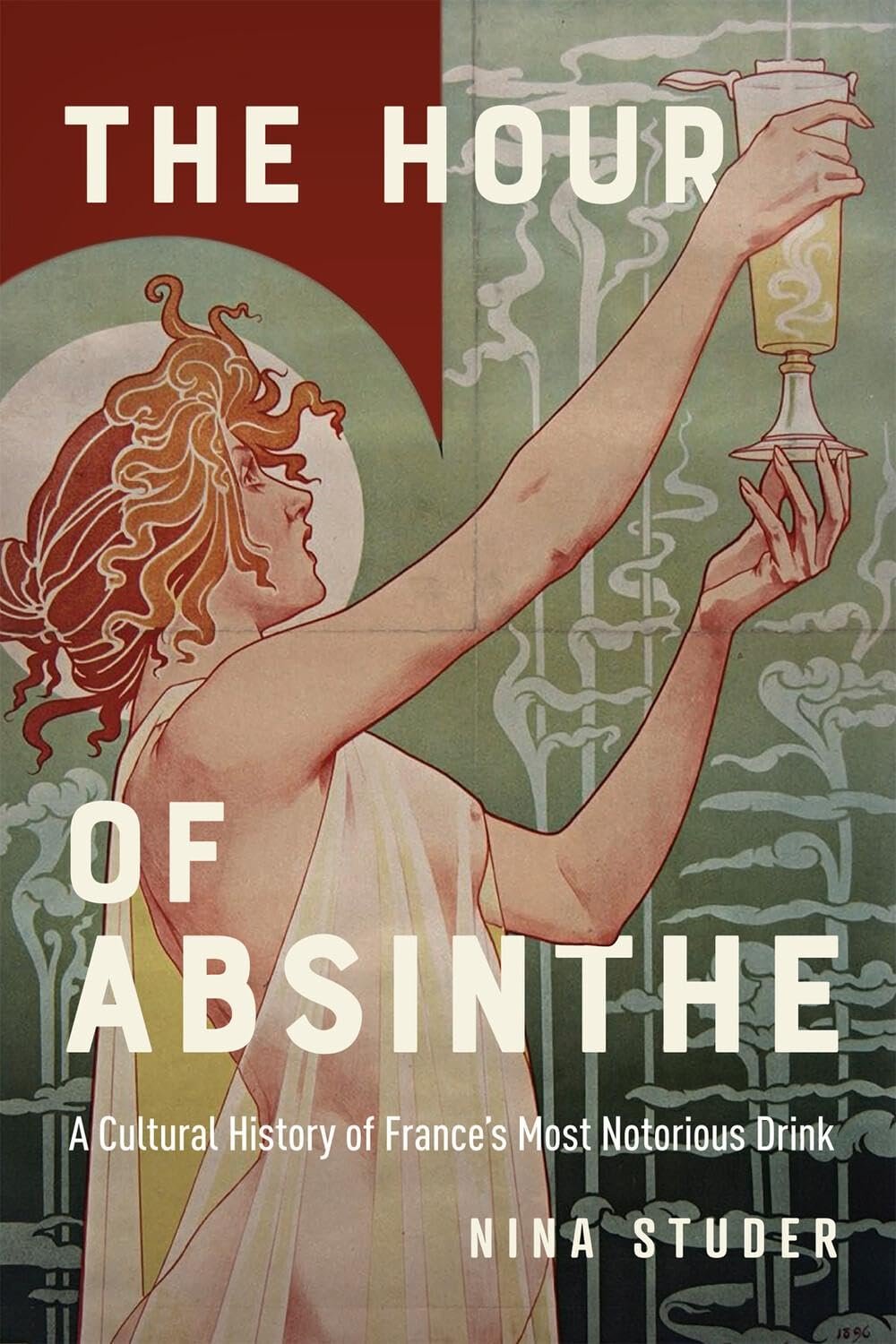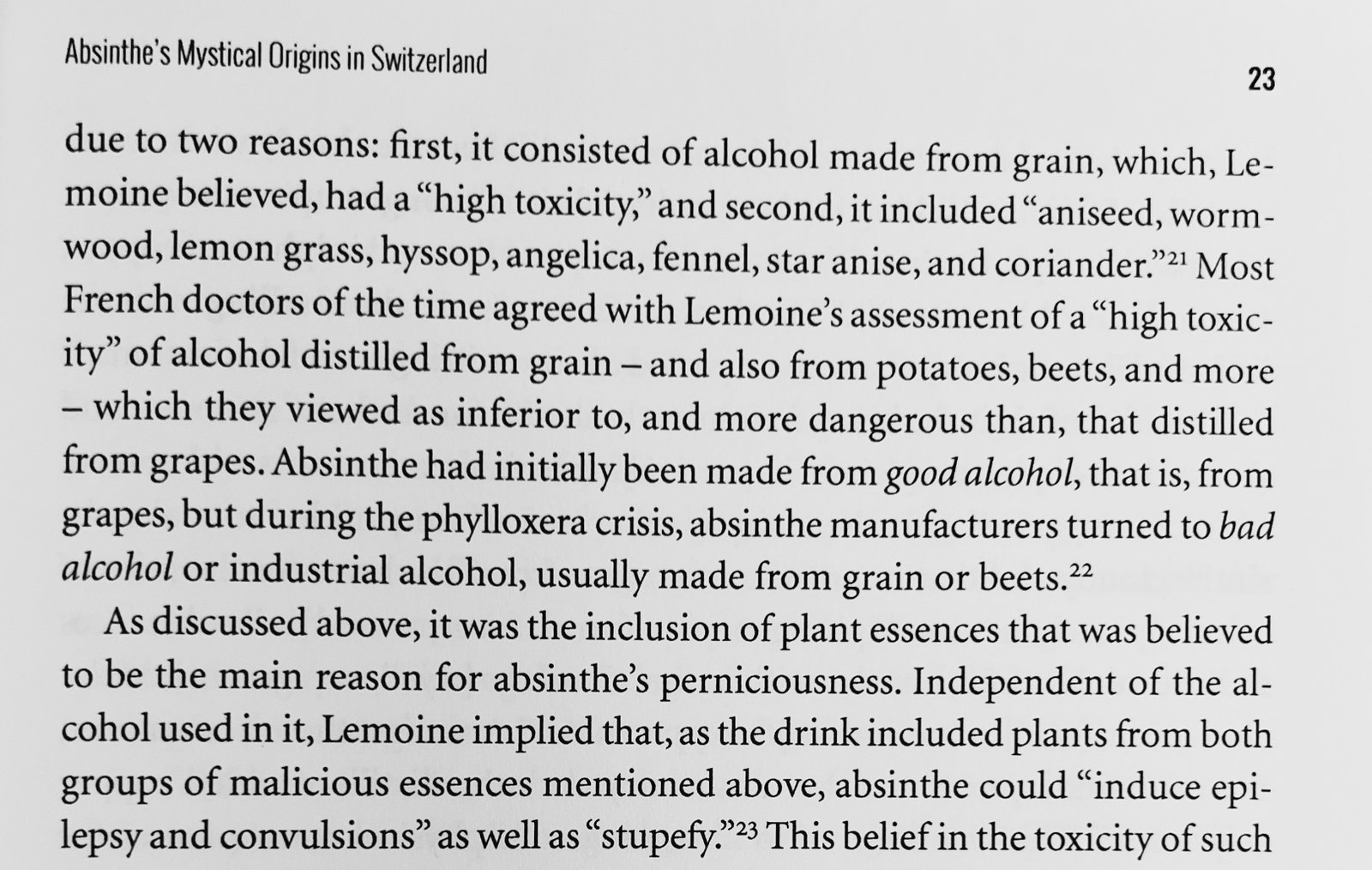I’ve read in other sources that when grain distillation became available in the 1400s and 1500s, it was viewed as a far less healthy alcohol than that distilled from grape wine.
The sources I’m thinking of were from Germany, at a time when distilled spirits were still technically medicinal, even if people were dipping into the medicine enough that governments passed laws about how much medicine could be dispensed at one time.
I also knew that when absinthe came into vogue in the early 1800s, it was initially made with a wine base, but due mostly to phylloxera that killed of the vines in France, producers swtiched to alcohol made from grain or beets.
I knew they called absinthe “artificial” and this pointed to it being flavored with wormwood and anise. I got the sense that the base spirit was considered “artificial” as well.
I have just started reading The Hour of Absinthe, an academics look at the popularity and downfall of absinthe in France and its colonies. I have the feeling I’m going to get a lot of use out of this book.
Anyway, the author Nina S. Studer makes it explicit:
So that’s cool. I look forward to continuing to read the book.
Buy: The Hour of Absinthe A Cultural History of France's Most Notorious Drink Volume [amazon][bookshop]
Your purchase supports my research as well.


Leave a Reply